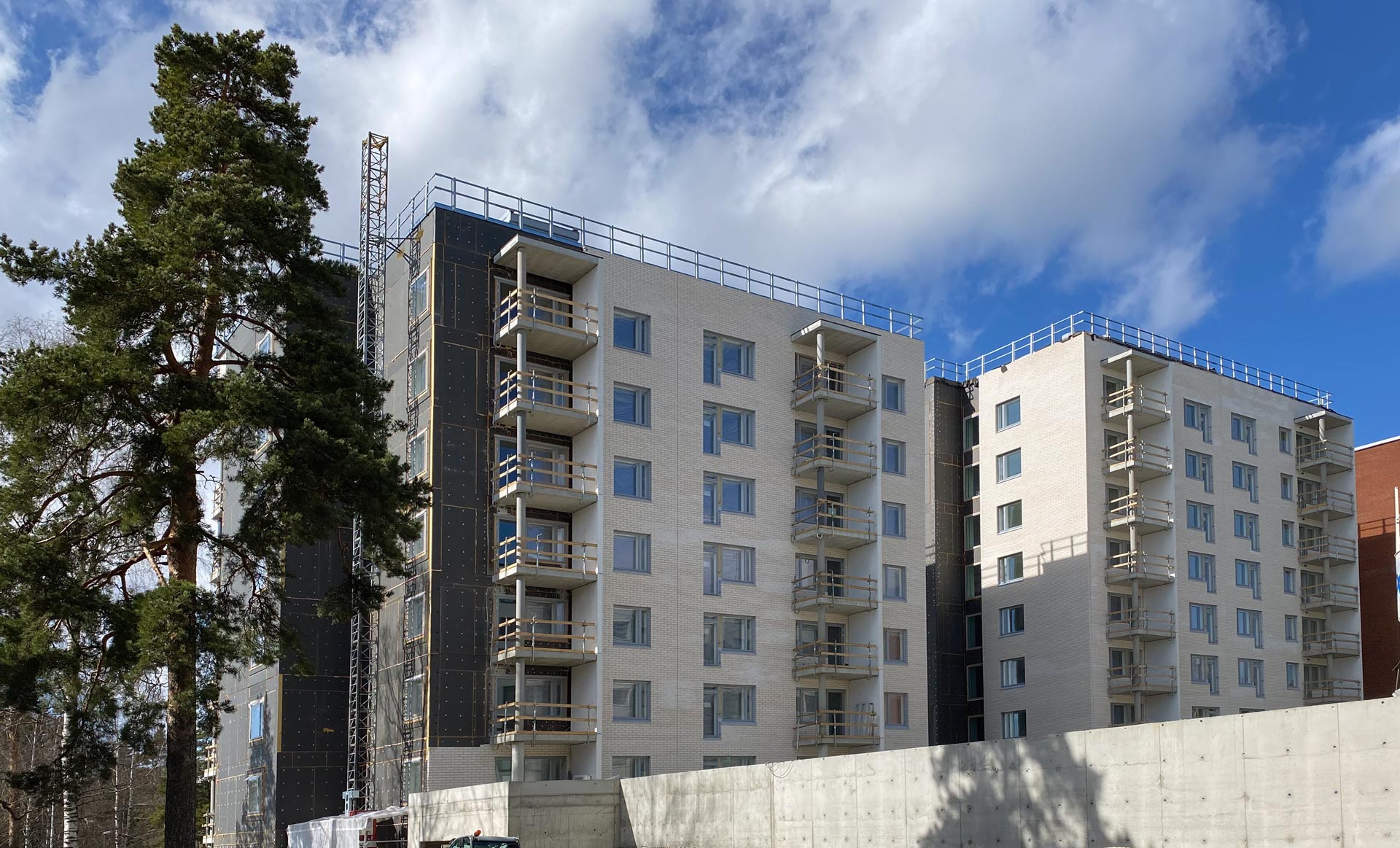Industrialized construction is crucial in meeting housing needs affordably. There are many ways to industrialize construction. Fira, a Finnish contractor, has developed its model with excellent results.
Finnish contractors have used precast concrete panels and slabs to build apartments since the 1960s. That speeds up the construction of the structural frame, facades, and stairways. However, interior construction is still a manual and often inefficient process.
Fira has been able to improve both structural and interior construction with lean construction methods, systematic material management, and prefabrication.
A showcase project
Finnish construction magazine Rakennuslehti featured a Fira construction site in their 38/2023 edition. The Postiaukio T1 project showcases Fira’s way of building.
The seven to eight-story project comprises 61 apartments with a gross area of 5,285 square meters (57 thousand square feet.)
A typical construction time of a similar project in Finland is around 16 months. In this case, Fira shortened the construction time from their reference duration of 12 to only nine months.
Revamping the value chain
Clients fear that making construction faster leads to quality problems. How is Fira able to shorten the lead time by 30%, saving 20% of the costs – as they claim in the article – while ensuring the required quality of the product?
There are more answers than a single method or technique. Instead, Fira has revamped the whole value chain. The production is based on standardization, prefabricated components, and process flow. They also replaced the traditional 10-20 subcontractors with the “one contract” model for interior works. Fira Modules, the group’s prefab arm, completed them.
The flow starts with a well-planned and precisely timed structural construction using precast concrete elements. Fira uses offsite production for mass-customized flueways, sanitary pipework, and bathrooms.
Takt production
Work is scheduled using the Takt principle with a four-hour Takt time. Every worker on the site knows precisely the job location and timing well in advance. They complete their work during one Takt and move to the following location on time. There’s no need to reserve buffers in the schedule.
Material management is also meticulous; the site has two haulers, and material deliveries arrive at 6:45 and 11:30 daily. One delivery contains the materials for four apartments.
The trade contractors receive hourly pay from Fira. This unusual arrangement and Takt scheduling remove the trade contractors’ urge to include risk premiums in their contracts.
Development and digitalization
Digitalization is an essential element of Fira’s process. Their projects plan and manage the schedule using Sitedrive and monitor the conditions on the site with IoT sensors.
Fira has developed its industrialized residential construction method over six years. They also boast a modular design library with over 800 standard apartments.
The company points out that standardization does not imply cookie-cutter buildings. Even architecturally varied solutions can be built using Fira’s system, says Topi Laine, Director of Residential Construction, in the magazine interview.
Photo: Aarni Heiskanen
View the original article and our Inspiration here


Leave a Reply